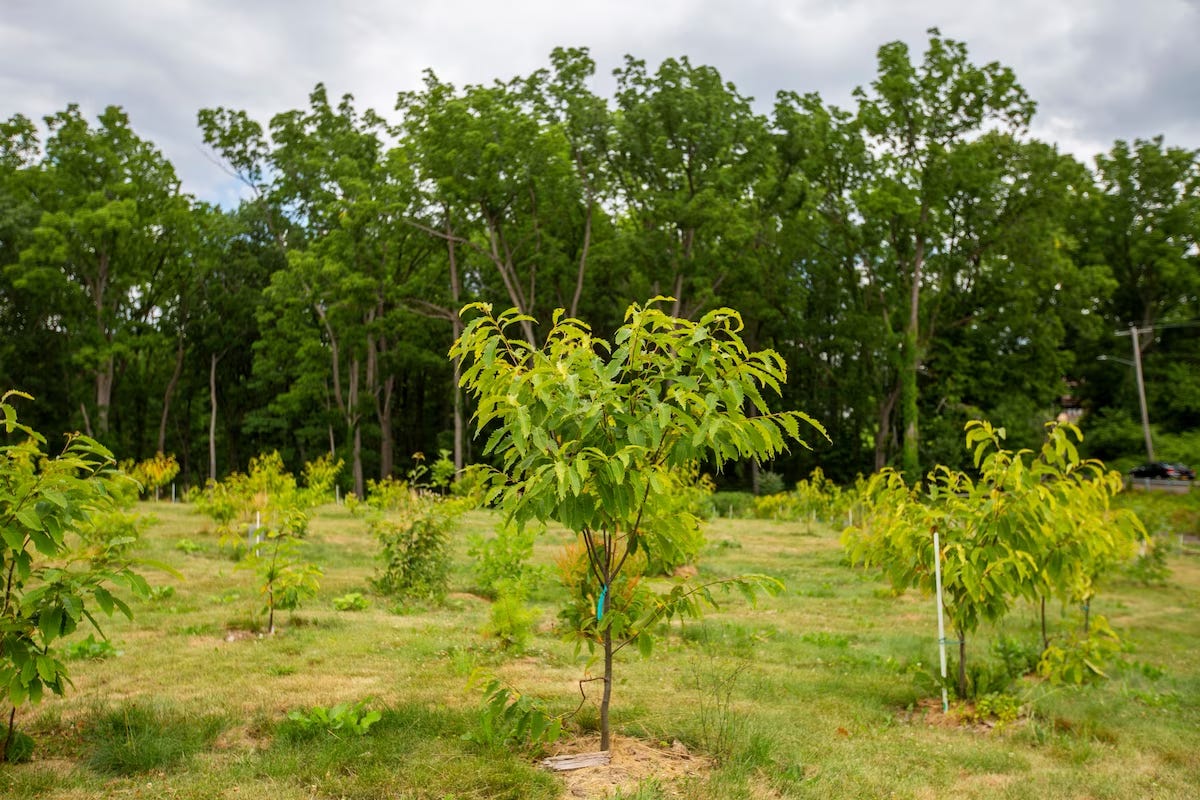News from a Changing Planet -- This Week on Earth #28
Look forward to the new year with climate-changed wine and planet-focused resolutions! Look back at the history of the American Chestnut and the Endangered Species Act!
IT’S ALMOST 2024! RAISE A GLASS TO….CLIMATE CHANGE?: How warmer temperatures and shifting weather is changing your New Years’ bubbly (The Economist)
When we think of champagne, we think celebration, France, elegance. We don’t necessarily think England, climate change, cultural loss.
But over the last few years, sparkling white wines from the south of England (technically not champagne for strict legal reasons) have sidled onto the fine wine scene, winning international competitions, reportedly being served at royal weddings, and attracting investment from actual French champagne producers.
But wine production in England isn’t actually new: The Romans brought it there, and there have been documented vineyards since the 10th century. Over the last few decades, people have been newly making good sparkling wine, defying all snobbish Francophile expectations.
I’ve been following this issue for a while because I think it raises interesting questions about the world we’re making. England and other northern climates, not traditionally known for their wine, may gain an advantage, other areas will be losing an important source of cultural identity. What does it mean for champagne if it can’t come from Champagne anymore? Do we still call it champagne? And what does that mean for the history, culture and tourism of the place?
We expect certain wines from certain places to taste a certain way. If, for example, it becomes too warm to grow pinot noir in Burgundy and producers there begin to use a grape more suited to a warmer climate, is it still a red Burgundy? Or does it taste how we’d expect a red Burgundy to taste?
I thought this story was an interesting, if perhaps overly sunny, interpretation of the goings on in the world of wine and climate change — certainly not the most important effect of climate change on the planet, but I think these bigger questions about culture, history and identity are interesting and will shape how we live in the world and continue to make meaning out of our time here.

TRYING TO BRING BACK THE PERFECT TREE: Inside the complicated effort to resurrect the American chestnut (The Atlantic; Washington Post)
Keep reading with a 7-day free trial
Subscribe to News from a Changing Planet to keep reading this post and get 7 days of free access to the full post archives.





